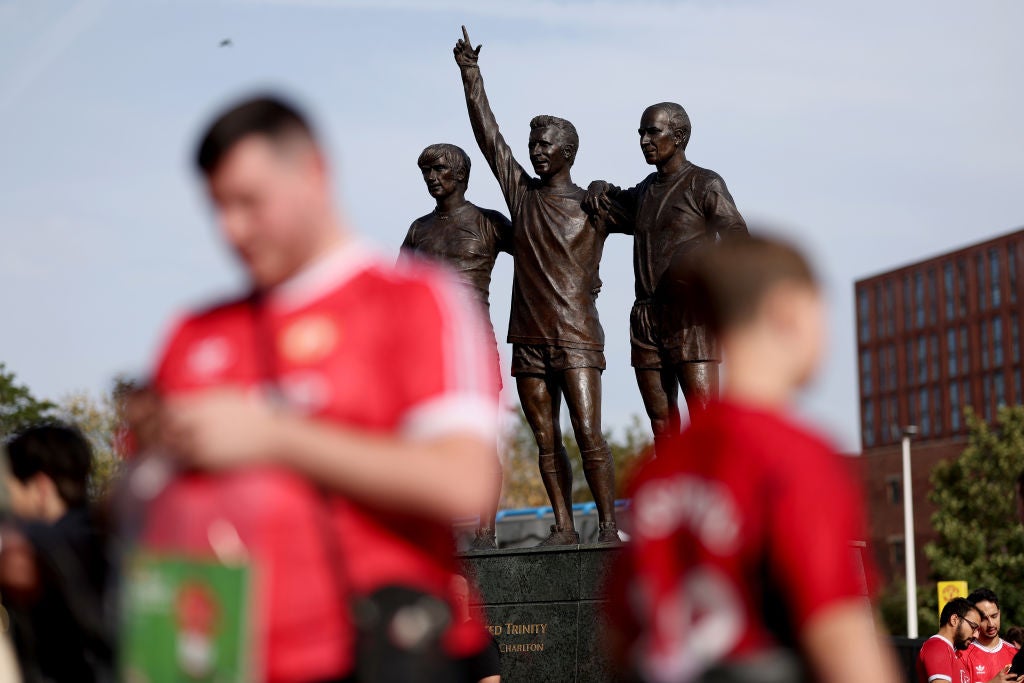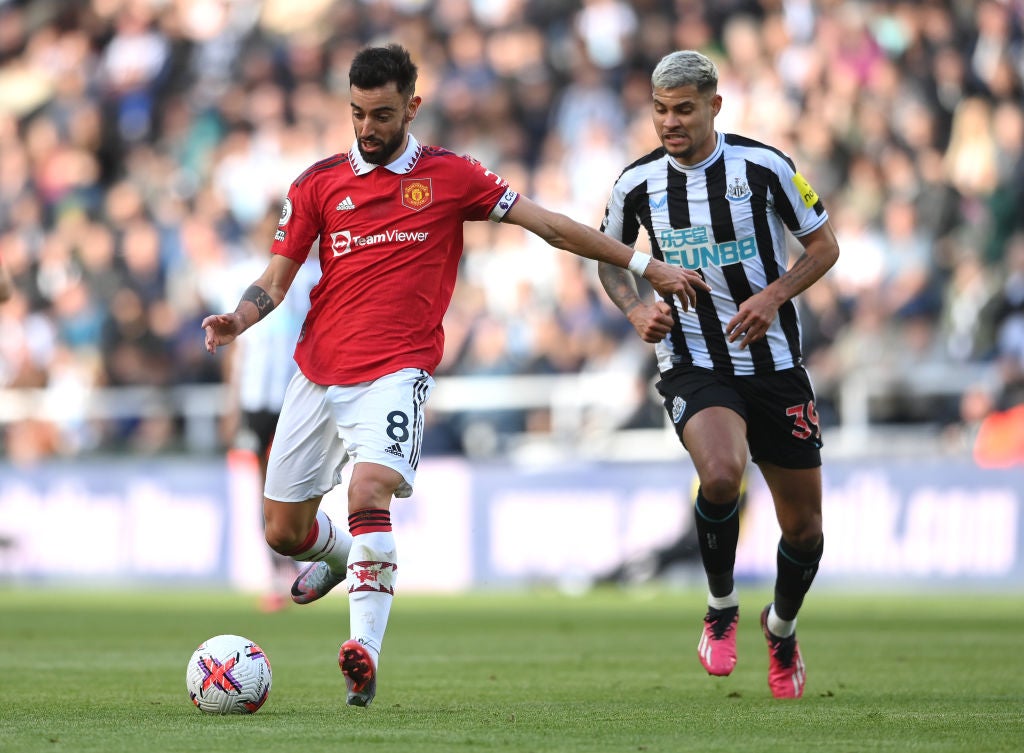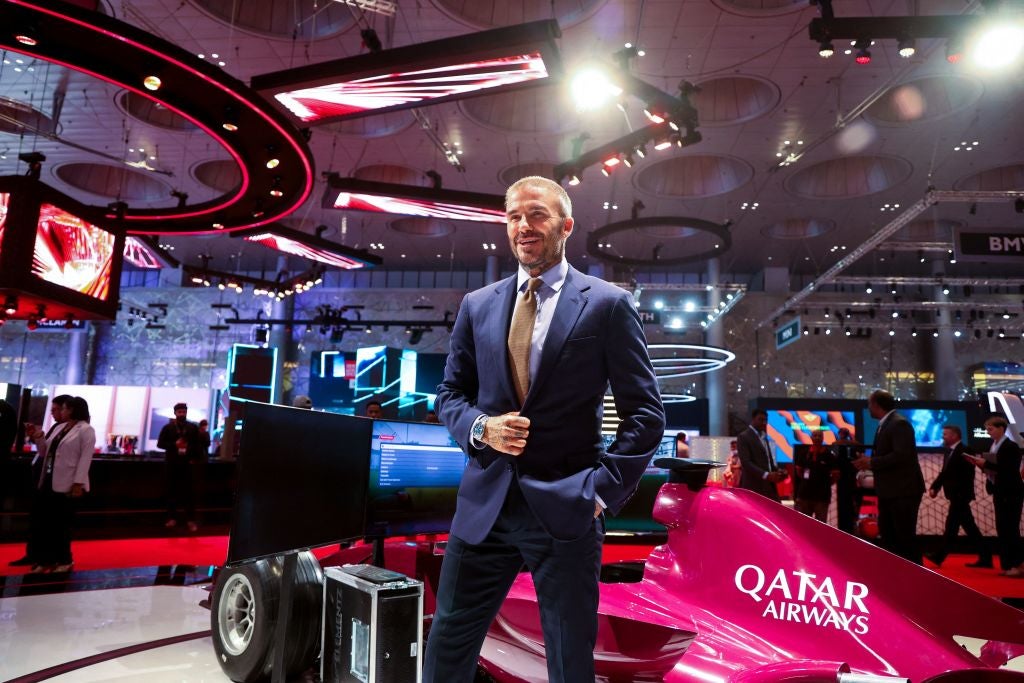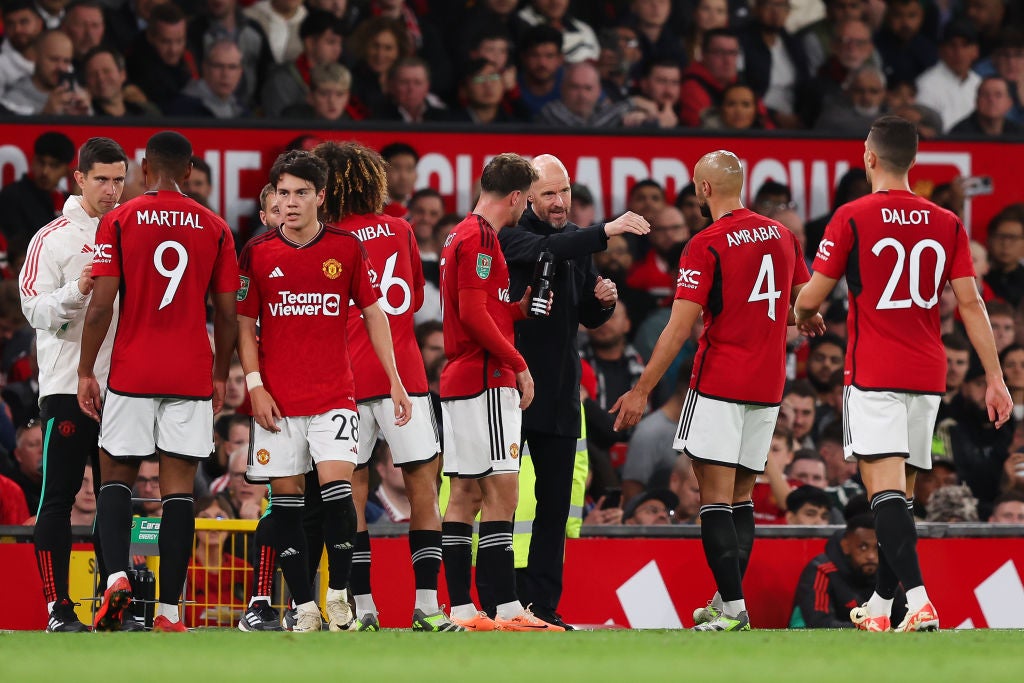How Jim Ratcliffe’s personal approach outmanoeuvred Qatar in the race to buy Man United
In the latest dramatic twist in a controversial saga, the Glazer family is poised to sell a minority stake in one of the world’s biggest clubs to the Ineos billionaire, Miguel Delaney reveals how Ratcliffe’s audacious and creative bid outplayed his Qatari rival


By the time that Sheikh Jassim’s camp made it known they were withdrawing their bid to buy Manchester United, the Glazers were barely paying attention. The truth was that the Qatari businessmen had actually pulled out days before, after final desperate talks with his representative Shahzad Shahbaz in the second week of October. This was all because Sir Jim Ratcliffe and his Ineos group have actually been in talks about a minority stake for at least two months.
That move came from a crucial calculation, that looks to have set a path to “victory”. It may even lead to majority ownership of Man United, depending on talks in the next few weeks. Ratcliffe and his advisors suspected from the very start that the six Glazer siblings wouldn’t be able to agree on a full sale, and the signs of that were all too clear as long ago as April.
The process had already been unusually protracted, as it went to a third round of bids. While four of the siblings wanted to sell at a price of at least £6bn, the two brothers most involved with United - Avram and Joel - were intent on staying involved. That meant the unanimity necessary for a full sale would probably never happen.
It is a similar impasse that started this process, and has now led to this point. The Glazers still see United as an immensely valuable source of income, but the shabby state of Old Trafford and the training ground meant that significant expenditure was required to keep that financial performance at the same level. That left the siblings with a decision.
They could invest themselves, which they were reluctant to do, given the estimation was that £1.5bn would be required.
They could sell up. Or, they could sell a minority stake.
It is that last option, after a long and frustrating process, that has proven the most navigable. It is also something that Sheikh Jassim’s camp simply never took into account. They were insistent on a full purchase only, which allowed Ratcliffe to completely outmanoeuvre them. He made an offer that the Qatar side just wouldn’t.
There was of course a lot more to that than Ratcliffe just going from bidding for 69% majority to 25% minority. Ineos, in the words of one source with knowledge of their approach, realised they had to “get creative”. A range of different strategies were considered, particularly from that key moment in April. Ratcliffe’s camp eventually went from seeking to solely buy the more influential Class B shares, and the threat of legal challenge from other minority investors, to this offer which comprises both A and B shares. The latter has seen off potential litigation. It has also seen Ratcliffe value United at just under £6bn, which is around £1bn more than the Qatari bid.
That reflects one of the great mysteries about this entire story, that has come to echo so many themes that define modern football - not least how one of the greatest cultural institutions can have its future decided by the most basic financial concerns.
From that, though, it’s fair to ask how serious the Qatari bid actually was. So many other questions also flow from that. It’s all the more ironic given that those close to the Jassim camp were talking about how their bid was the only serious one as late as May, and that Ratcliffe was a mere “stalking horse”. It’s all the more relevant when one of the biggest issues in football now is “sportswashing” and the influence autocratic states are exerting on the game.
It is known that Qatar haw been seeking to expand its football portfolio since the World Cup. That tournament was seen as a historic success, despite ongoing criticism about human rights. The Independent similarly reported earlier this month that Saudi Arabia’s purchase of Newcastle United through the Public Investment Fund had further motivated Qatar to stay in the sport, due to their regional geopolitical rivalry.

It is also known that a bid of this size, involving a potential asset as globally famous as United, just would not have happened without some level of approval.
So why did this bid not win? How did a businessman with access to Qatar’s virtually limitless wealth not just “blow Ratcliffe out of the water”, as was the phrase so commonly used in the early stages of this process?
There are multiple theories, but few concrete answers. One view, as told to The Independent by Gulf academic Chris Davidson, is that the Qatari state was stung by regional criticism over how much they overpaid for institutes like Harrods. There has since been a greater emphasis on being seen to strike savvy deals and not get financially exploited, which has brought a recalibration of strategy.
Given the clear value of a club like United to a state like Qatar, though, it remains surprising as to why Qatar didn’t just offer an extra £1bn at least. It would have been worth much more in the long term, in what was a unique opportunity to have one of the greatest names in the world’s most popular sport. That isn’t quite prestige you can’t buy, so to speak, but it is preciously rare.
That raises another unknown, which is what figure the Glazers would have actually accepted. Sheikh Jassim’s camp long felt their own offer of just under £5bn was already too much. Raine, who were handling the process, were targeting between £6bn and £8bn. It is understood that Avram and Joel Glazer now feel United could easily be worth £10bn by 2030, due to anticipated shifts in the sport’s economic and broadcasting models. As Arsene Wenger told The Independent in September, “football is conquering the world at an unstoppable speed”. That has led to virtually every private equity group in the west trying to buy stakes in the game, making it all the more questionable as to why the Glazers would just give up one of the prize assets at such a time. It might well have looked an unusually poor financial decision.
Either way, Jassim’s camp never moved off their sole strategy. That was incrementally improving offers while briefing how much they would spend if they won. The latter went alongside another mystery of this process, which was the number of times that there would be a flurry of activity on social media that Jassim success was imminent.
Such noise aggravated the selling side, since the camps had been assertively told not to brief on this process.
The sources of such flurries remain unknown. The exact distance between state and individual is also unknown.
One other theory is that Jassim was left to try and buy the club himself, but the state would exert influence once the purchase was completed. It is certainly true that high-profile Qatari officials, such as Nasser Al-Khelaifi, chairman of BeIn Sports and Qatar Sports Investments, were consulted at various points. There was even talk by involved figures that Al-Khelaifi could be moved across from Paris Saint-Germain to United, while potentially bringing in David Beckham. The latter might have brought things full circle for Sheikh Jassim. Those who insist on his "passion" for the club point to a story of how he once explained who Beckham was to his uninterested father, Qatar’s former prime minister, Hamad bin Jassim.

Whatever the truth of any of that, it is a fact that Jassim’s lack of personal presence in the process became an increasingly influential factor. Negotiations were largely left to representatives and advisors.
Ratcliffe, by contrast, immersed himself right into it. He made a point of travelling to United for the official visits after those first bids. Whatever the public relations of such a move, it offered a self-made billionaire like Ratcliffe more and more insights into how this was working.
This would doubtless have proved invaluable, especially when other football executives have previously described the Glazers as “among the strangest I’ve ever met in the game”. The sibling are not easy to deal with, as this entire storyline has made clear. Almost all decisions made at Old Trafford go through them.
Unlike Sheikh Jassim, though, Ratcliffe has been involved in all talks that have gone to higher and higher levels.
Those negotiations are far from over. Ratcliffe is now insistent on “a path to majority ownership”, which is why his offer of a minority stake has not yet gone before the United board to be ratified. Those talks could well go on for weeks, and might even be described as a “deal breaker”.
They aren’t seen as a major concern, though, because the Glazers themselves are at the point where they need some kind of deal. They need the investment, and this is a very good offer for them. They retain control and a majority and get what they want. As such, talks are currently described as relatively smooth and going as expected.
Part of those negotiations are over football influence, which Ratcliffe is similarly pushing on. There is a wider context to that, too, beyond United’s long-term underperformance.
Ratcliffe’s willingness to do a deal that allows the Glazers to maintain control has infuriated a core of supporters. There have also been wider accusations of Ineos using sport to “greenwash”.
Sources close to the group and Ratcliffe are currently at pains to make clear this is all about “legacy” and trying to enjoy success with a club that he loves. That's why he is going for an offer that looks so much more favourable to the Glazers. Ineos’ scrutiny of the club's structure has meanwhile ensured they feel the football side can be run much better, something virtually all United supporters would agree with. It would be hard to think otherwise.

United have badly underperformed over the last decade given their immense expenditure on transfer fees and wages, and that is largely put down to a football structure that is viewed as out of step with the best in the game. The club has made a series of ill-fitting managerial appointments, as well as bad signings. Current football director John Murtough is meanwhile seen by senior European officials as someone who wouldn’t get the same role at other major clubs.
Ineos feel they can improve all of this, while showing fans how they can work. There’s also the blunt reality that nothing minimises criticism in football like trophies.
Within that, many sources talk of Sir David Brailsford being involved, but it is expected that former Juventus chief executive Jean-Claude Blanc will ultimately have the primary influence over sporting strategy. He will likely pick those in positions of football intelligence, who set the future philosophy. This need not be a worry for manager Erik ten Hag, though. Ineos previously saw him as a potential manager for their other club, Nice, before he went on to much higher levels.
This whole process now looks to be reaching its final stages. That might take weeks, even months, but there is at least a sense of clarity. That is something that nobody has been able to say about United for some time.






Join our commenting forum
Join thought-provoking conversations, follow other Independent readers and see their replies
Comments